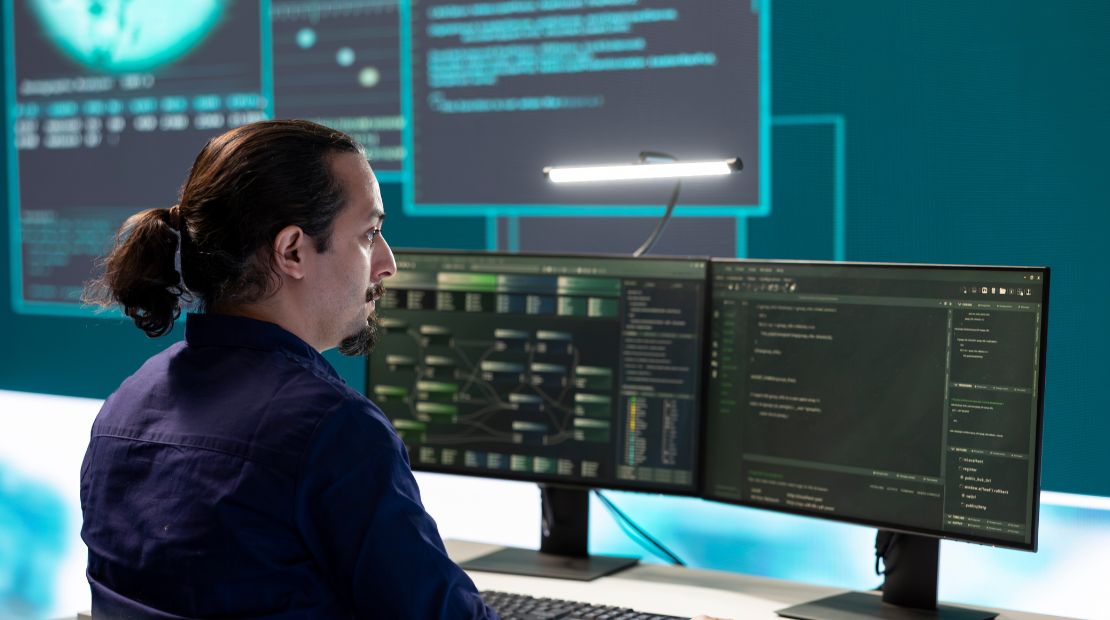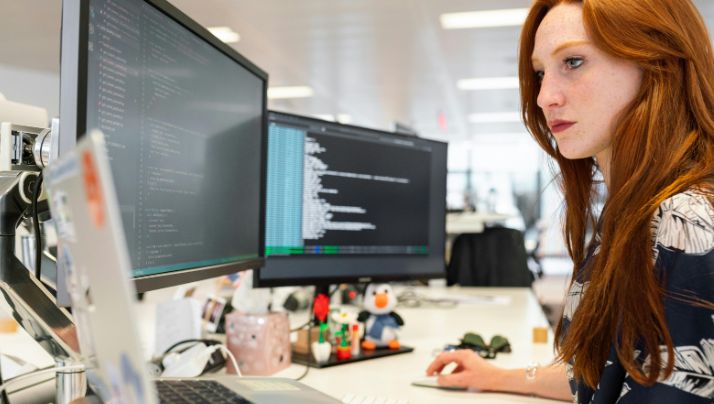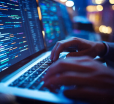AI Isn’t Replacing Security Experts—It’s Helping Them Work Smarter

Table Of Contents
There’s been a lot of discussion recently about AI replacing jobs. And in some areas, that may very well seem like a genuine concern.
But in cybersecurity, that’s not what is occurring.
AI is not replacing security professionals—it’s providing them with tools to make quicker decisions, detect threats earlier, and handle increasing workloads without exhausting themselves.
Today’s application security is more complicated than ever before. Teams must defend code that is constantly in flux, stay abreast of quickly evolving threat categories, and watch for systems that run on multiple cloud services.
It’s more than one person—or even a team of people—can manage manually. And that’s where AI comes in.
By handling repetitive tasks, scanning huge amounts of data, and spotting patterns that might take a human hours to find, AI is becoming a valuable assistant—not a replacement. In fact, some companies are already using ai security applications to support their teams, and it’s helping them work smarter, not harder.
Do you want to know more about the AI benefits for cybersecurity experts? Read on.
Why Security Workload Is Growing So Fast?
Security teams don’t merely write rules and scan code. They handle bug reports, analyze alerts, handle incidents, scrutinize new updates, and ensure systems are enforcing security policies. The bulk of that must occur fast, and oftentimes all simultaneously.
The issue is that the amount of work continues to increase. Apps ship quicker, updates occur more frequently, and the number of potential attack surfaces continues to increase.
Each line of code, each API call, and each third-party tool creates a new location where something can be broken.
That’s a lot of watching. And that’s not a matter of velocity—it’s a matter of precision. One botched signal or sluggish response could cause actual harm. That sort of pressure can drain people quickly.
What Are The AI Benefits For Cybersecurity Experts?
AI benefits for cybersecurity experts aren’t running the show. It’s not calling the shots or replacing human judgment. What it is doing is helping teams stay focused by filtering out noise, handling repeatable tasks, and surfacing risks that deserve real attention.
For instance, a security analyst may receive hundreds of alerts daily. The majority of them are either low-risk or false alarms. It takes time to go through each of them, and it is simple to get sidetracked or overlook something important.
An AI system can sift through those alerts automatically—identifying ones that appear suspicious or match a previously known risk pattern—so that the analyst only has to look at the important ones.
AI software also assists in code review. Rather than spending hours scanning lines and lines of code for typical security vulnerabilities, the machine can flag up sections that appear dodgy based on history and known bugs.
The programmer still goes over it and makes decisions about what to do, but the AI ensures nothing glaring is overlooked.
1. Helping, Not Replacing The Experts
One of the largest myths about AI is that it’s going to do the entire job by itself. That’s not what’s occurring in security. All the major AI tools are actually created to help experts, not substitute for them.
They’re best when they’re accompanied by human context. The AI may detect that a user is accessing something from an unfamiliar location or that a code update contains an insecure function.
But it’s up to the human to determine if it’s actually a threat or simply something unorthodox.
AI assists with consistency as well. Humans have varying decisions on different days, particularly when they’re exhausted or in a hurry.
AI machines use the same rules each time. That makes them valuable for tasks that are repeated, such as looking for known problems or ensuring rules are adhered to.
2. Less Burnout, More Focus

Cybersecurity groups are often stretched thin. Endless hours, recurring notifications, and extreme pressure to never make a mistake can burn people out quickly. That’s not good for security or for the folks doing the job.
When AI applications do the tedious, time-consuming aspects of the job—such as going through logs or monitoring APIs for policy breach—these experts have more time to devote to the things that truly require thought.
That could be digging into a difficult bug, strategizing for long-term enhancements, or assisting developers in writing more secure applications in the first place.
This type of change doesn’t eliminate jobs. It makes them more efficient. Individuals get to concentrate on high-value activities rather than spend energy on tasks machines already perform efficiently.
3. Smarter Tools For Growing Teams
With growing companies, their apps grow along with them. That translates into more users, more updates, and more security threats. But most teams don’t scale at the same rate as the apps they are responsible for securing.
That’s where AI software can truly assist. Not only do they scale more quickly, but they also get smarter with time. Much of today’s AI security software learns from what it scans.
That is, the more they scan, the more effective at identifying actual threats and discriminating against noise.
They also enable new hires to come up to speed more quickly. Rather than having to wait to learn everything by hand, they can utilize AI tools that highlight typical mistakes in real-time. That makes training easier and prevents errors early on.
4. Not Perfect, But Getting Better
No tool is flawless—not even the best AI. Occasionally, it still gets things wrong. It may overlook a sophisticated threat or flag something that isn’t really risky. That’s why humans are still necessary.
But these devices don’t have to be flawless to be useful. If they can cut down on the number of warnings, point to the correct areas, and save time on the daily checks, they’re doing their work. The goal isn’t to do the work for you—it’s to make it easier, quicker, and more precise.
And as these tools get better, they’ll continue to make security teams more efficient, not by taking their jobs, but by enabling them to do a better job of handling the load.
What Do AI Benefits For Cybersecurity Experts Look Like In Practice?
There are already a lot of security teams employing AI-based tools on a daily basis.
There are those who use them for code reviews, others who use them for open-source dependency scanning, and some employ AI to identify strange activity in real-time system logs.
The greatest tools don’t get in the way—they become a part of it. They run silently in the background, verifying everything as people work. And when something does require attention, they make it explicit and simple to see
That saves time. It reduces stress, too. And when things happen quickly—as they so often do with app development—every little bit of time and transparency matters.
The Main Idea Is To Manage The Extensive Tasks Without Errors
Security work is expanding too quickly for humans to manage it all themselves. There’s simply too much code, too many systems, and too many ways that something can go wrong.
AI benefits for cybersecurity experts assist by managing the things machines are best at doing—scanning, sorting, and detecting patterns.
It leaves the tough decisions, strategy, and actual problem-solving to those who understand the system best. AI security applications are intended to augment that work—please, not replace it.
It’s not about replacing experts. It’s about assisting them in doing their jobs better, with less stress, and more attention to what matters most.
Read Also:
You May Also Like

July 29, 2025
A Guide To Declaration Policy In Marine Insurance

August 27, 2025























